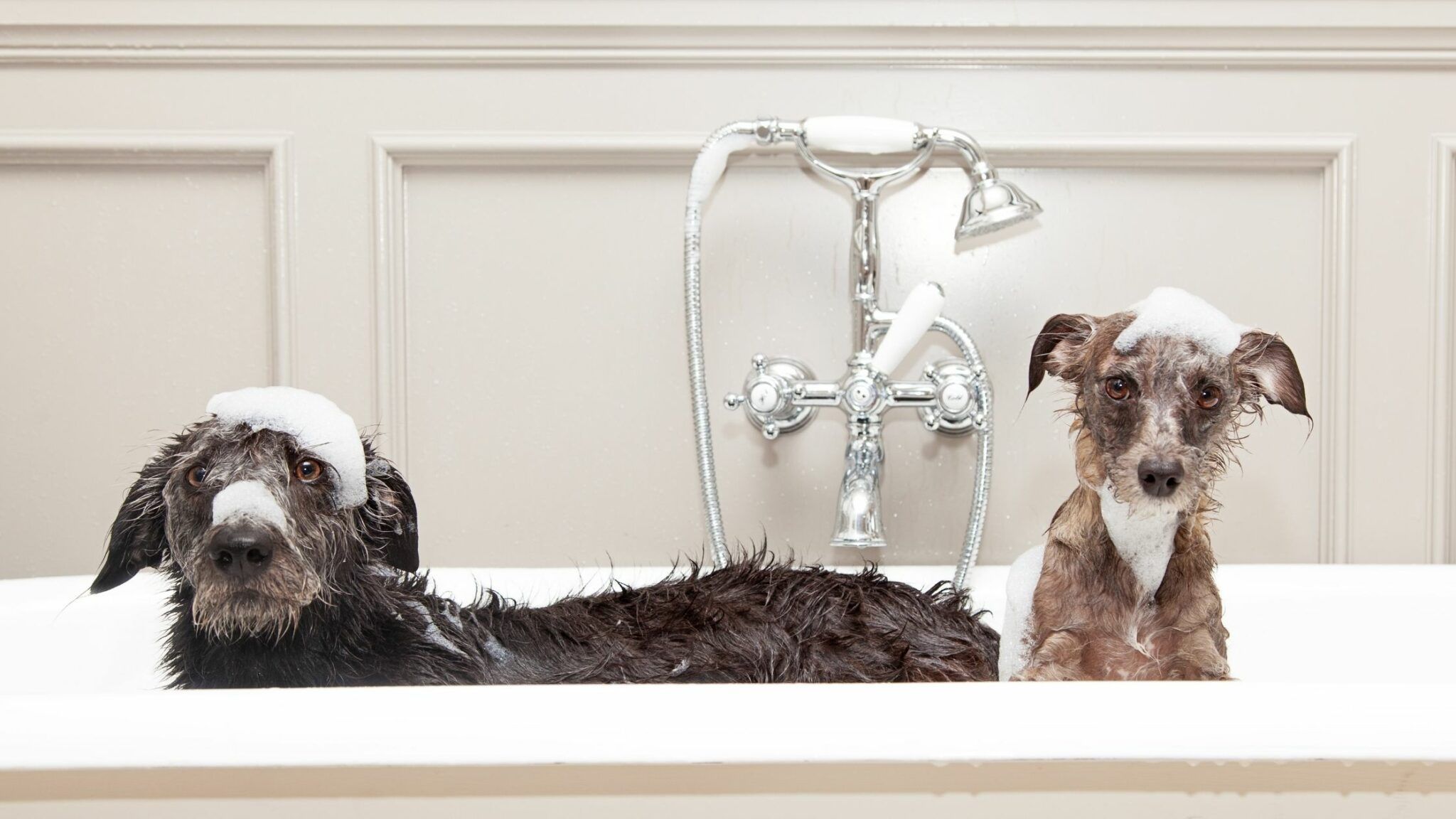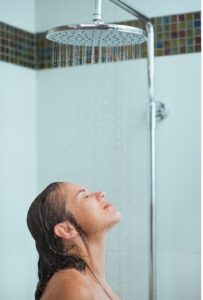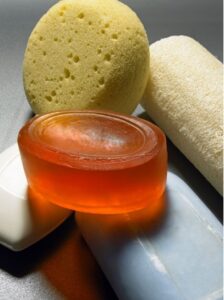Shower in the Morning or in the Evening? New findings.

Dermatologists agree that showering or bathing too often and too long is harmful to the skin. What does this mean exactly and when is the best time of day to cleanse the body with soap and water? And what about a soothing bubble bath, for many a beloved ritual where you can relax so wonderfully?
A small study in my environment – which of course makes no claim to general validity – gives me the first clues. When asked “When and how often do you take a shower?”, Two camps emerge: the early showerers and the late showerers. The morning showers swear by their wake-up shower after getting up. The evening showers wave aside: “I prefer to sleep a little longer in the morning”. And those who shower twice a day do it routinely, “because that’s how you learned it after all”. So it’s obviously a type question. In truth, there is more to it than that. After all, showering does more than just cleanse the body.
Hot or cold shower?
No discussion, morning grouches start the day much fitter after a shower. However, the water should be rather cool to wake up. When taking a hot shower, the body temperature rises first, but drops just as quickly as soon as you step out of the cabin. Cooling down makes you tired and leads the organism to believe that bedtime is approaching. Because even without a shower, your body temperature drops in the evening and you get sleepy. For people with problems falling asleep, a hot shower in the evening can be beneficial: the artificial cooling makes you tired faster. Morning showers may again argue that the body sweats at night and the bacteria then lodge on the skin and bedding. And you want to get rid of them very quickly after getting up. Last but not least, hot showers are ideal for relaxation, to loosen up the muscles and reduce stress. So do you prefer your shower twice a day? Anyone who does not have problematic skin is welcome to do so. However, even then: keep an eye on the time. In terms of duration and temperature, you shouldn’t overdo it under the shower or in the bathtub. Ten minutes are sufficient when showering. If you don’t want to do without an occasional full bath, you should stay in the water for a maximum of 20 minutes at 37 – 40 degrees. Otherwise the skin will swell up too much and the protective acid mantle will take much longer to regenerate. Highly foaming additives also remove fat and moisture from the skin. This also attacks the body’s own protective layer, and germs have free rein. After a shorter bath, the skin’s pH recovers faster, and toxins are still sweated out of the body.
Trend: Cleansing Reduction
Listen to your body, because the blood circulation, muscles and skin react very differently to water applications depending on the time of day. Hot water relaxes the muscles and dilates the blood vessels, which causes the blood pressure to drop and makes you tired more quickly. So if you prefer to take a very warm shower, you should move it to the evening. If the skin is rather dry, it will also benefit from the evening shower because the protective skin coat can regenerate more easily overnight. Tight clothing does not interfere and skin care products have enough time to be absorbed. The following applies to very dry and sensitive skin: always shower lukewarm. This is less stressful for the skin. Shower gels can also cause unnecessary irritation. Therefore use soap-free, mild and pH-adjusted cleaning products. It is also sufficient to clean only the “odor-critical” areas with shower gel and rinse off the rest with water. Sometimes you can even do without additives altogether: “If you are only sweaty but not soiled, you may get by without cleaning aids. The desired refreshment comes with showering anyway, and the water has a rinsing effect,” confirms hygiene specialist Dr. Ernst Tabori, Director of the German Advice Center for Hygiene (BZH). “In any case, not using shower gel does not make you sick.“ In any case, dermatologists recommend that people with dry skin, especially those with neurodermatitis, shower no more than every other day. Otherwise only clean the areas thoroughly with a washcloth (bacteria catcher! Change daily!) where unpleasant body odors can develop. This body hygiene trend is called Cleansing Reduction, which in any case keeps the protective acid mantle of the skin intact and thus prevents itchy skin and a feeling of un pleasant tightness. Many dermatologists now even advise everyone to only shower every two to three days to protect their skin.
Shower benefits in short
Generally when showering as long as necessary, but as short as possible. And preferably not every day. Anyone who sweats heavily at night takes a shower in the morning to rinse off the sweat and be safe from odors. Oily hair also benefit from the morning water jet to remove excessive sebum. If you want to get your circulation going and recharge your batteries, you also take a shower in the morning. But please with cool water! This wakes you up and stimulates blood circulation. “There’s no scientific evidence to suggest which time of day is better to take a shower every day,” says Dr. Amesh Adalja of the Johns Hopkins Center for Health Security in Baltimore, although he does acknowledge that people who have acne or an allergy to animal hair, house dust mites or pollen should shower better in the evening.
You want to know more about the health benefits of a cold shower? Read “Cold Showering 101” of James Scott.
*This is an affiliated link. You don’t pay more. It is just a little thank you for our team.

CultureAndCream Author from Munich
To travel during my profession as a beauty journalist was never enough for my. Also my six month on a world trip didn’t do it. It always attracts me to other cities, foreign countries, on roadtrips and places I don’t know yet. But I am not only interested in “culture” and “cream”, I am also fascinated by people who have stories to tell . Such unique experiences I want to share with you.


